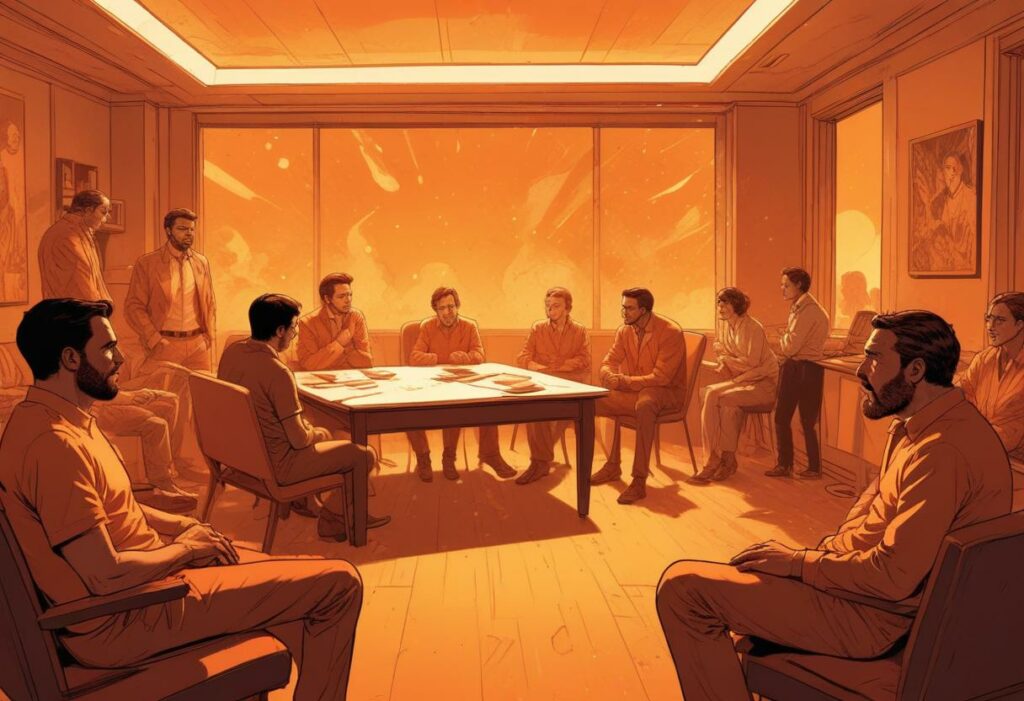Decentralized autonomous organizations (DAOs) have posed some interesting questions about social coordination, corporate structures, and governance. For example, who should decide how a company operates? Is it the founders who birthed the idea for the business or the employees who are directly affected by the decisions made?
Many proponents of such organizational structure agree that DAOs allow for greater participation and decision-making power among members. For instance, it costs less than $1 to be a part of BitDAO, one of the world’s largest decentralized autonomous organizations.
While the idea of decentralized governance seems appealing, it is marred with a number of bottlenecks, including voter apathy.
Politically, voter apathy refers to a lack of interest in participating in governance by certain groups of voters. This translates into low voter turnout in governance proceedings.
Voter Apathy in DAOs
Access to a decentralized organization is typically through the ownership of a token. This token in turn grants holders the power to create and vote on proposals either directly or through delegates.
As of 2023, there were over 12,500 DAOs according to Web3 analytics site DeepDAO. These organizations collectively control nearly $22 billion in treasury assets. However, less than half of the governance token holders in these DAOs are active voters.
Taking the popular ApeCoin DAO as a case study, an ApeCoin Improvement Proposal (AIP-235) was rejected by the community on June 1, 2023. The governance process received just 393 votes. Comparatively, there are over 120K $APE token holders. This represents a meager 0.33% of eligible voters, suggesting that over 99% of the possible voters abstained from the process.
It is impossible to get the actual figure of eligible voters that abstained from the process since the data includes token holders who may be traders without an interest in governance.
Digging deeper, there are about 7,300 active voters in ApeCoin DAO. Confirming the voter apathy problem, the level of voter participation within the group sits at a mere 4.7%, with the average votes per proposal being 600.
Causes of Voter Apathy in DAOs
Forget the decentralized tag attached to DAOs, participants are drawn from Web2, meaning that decentralized organizations will not magically eliminate the problems of traditional organizations. The point is that voter apathy currently exists in traditional governance and DAOs are not expected to be an exception.
So, what are the causes of voter apathy both traditionally and in DAOs?
Lack of Interest
Let’s be honest, most people in crypto are not interested in the tech or disruptive potential. You’d probably agree that “profit” is more highly placed than governance in many crypto circles and “as long as I get a mouth-watering ROI, I don’t care about how the DAO is governed.”
Voting in DAOs can be time-consuming, as it often requires reading through proposals and understanding the implications of each vote. Many people are simply not interested enough to commit themselves to this process.
Lack of Knowledge
Unless a member is tech-savvy and actively following the governance process of a DAO, voting can become a herculean task. Some proposals are just too technical to understand, especially for regular joes. The sensible thing to do in such cases is to abstain from voting.
Alienation
A critical look at DAO voting data shows that a few large token holders control the bulk share of the voting power. In its current state, DAO governance is tilted in favor of big players. A June 2022 Chainalysis report confirmed that less than 1% of all holders controlled 90% of the voting power in the ten major DAOs.
The implication is that small-time players have no confidence in the system since they feel like the political system does not work for them and any attempt to influence it will be a fruitless exercise.
Voter Fatigue
Members are bound to abstain from voting when proposals or elections become too much. One example of this is PancakeSwap DAO, which has become a honeypot for ridiculous proposals.
Tackling Voter Apathy in DAOs
Although there are many experiments around decentralized governance and ways to improve voter participation, I’d like to state that the problem of voter apathy cannot be entirely solved within DAOs. Some people will naturally stay away from governance and there is nothing you can do about it. However, DAO devs and builders can explore the following ideas to improve participation.
Simplify things
DAO proposals should be easy to understand even for less tech-savvy members. While it may not be entirely possible to break down every proposal and the technicalities involved, DAOs should put in enough effort to summarize what a proposal is, its pros and cons, how it will affect the protocol, as well as its impact on the regular user, all in simple terms.
Incentivize participation
While I am not a fan of incentivizing governance participation since members can dump the project once the incentives stop, DAOs can experiment with rewarding engagement. Participants can earn some reputational, financial, or emotional incentives for voting.
Notify participants
It is very easy to forget an upcoming voting round, depending on the number of DAOs an individual is involved with. In addition to marketing ongoing discussions and upcoming rounds, DAOs should create tools to notify participants. It could be in the form of a Discord ping or email notification.
Level the playing field
DAOs should look for ways to balance voting power between whale holders and retain players. The mere thought that my vote will not count because of how many tokens I own is enough to discourage me from participating in any governance process. Take the previously mentioned AIP-235 by the ApeCoin DAO, for example, the bulk of the decision was made by the top three voters, despite the participation of over 390 other voters.





